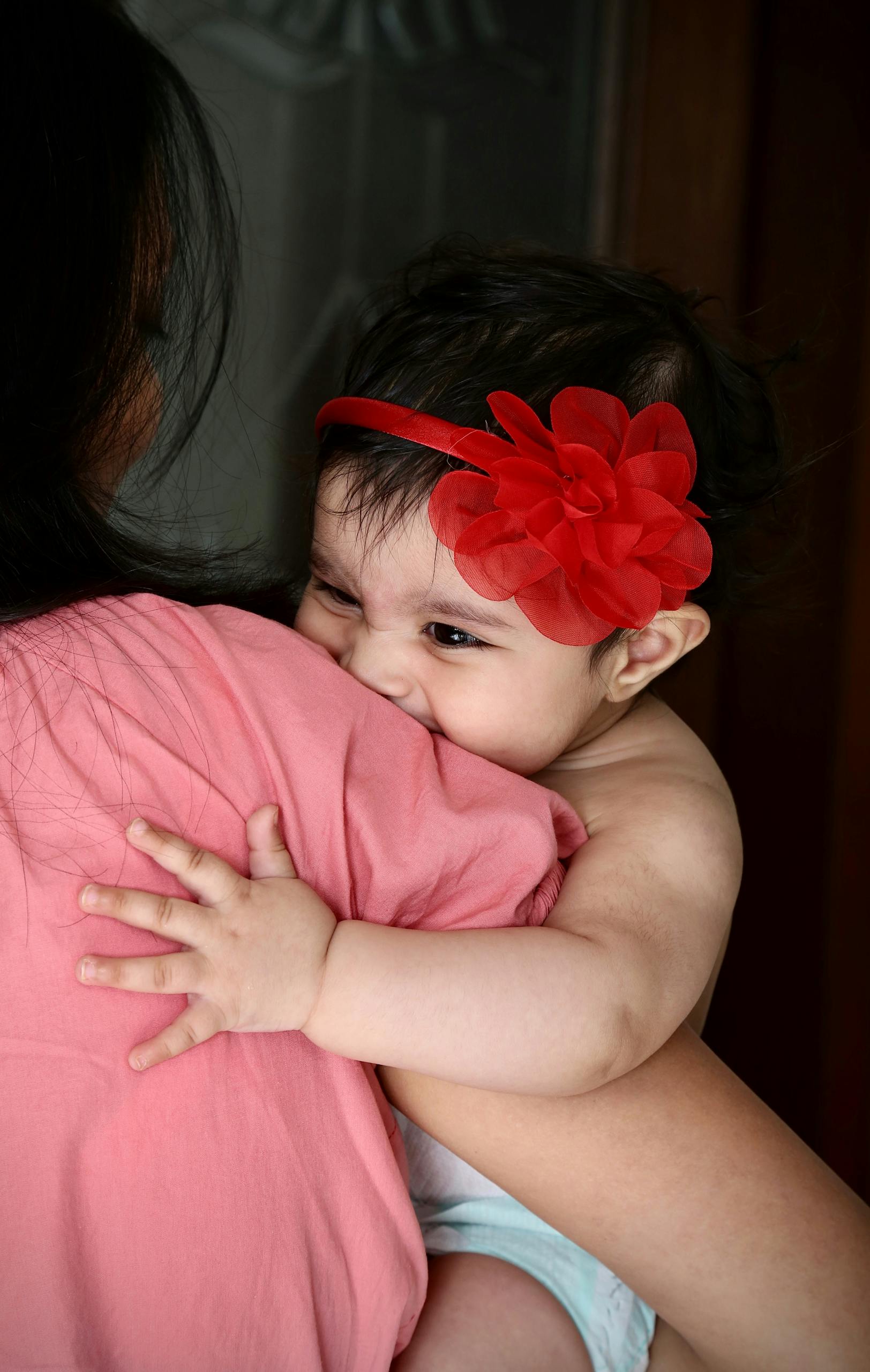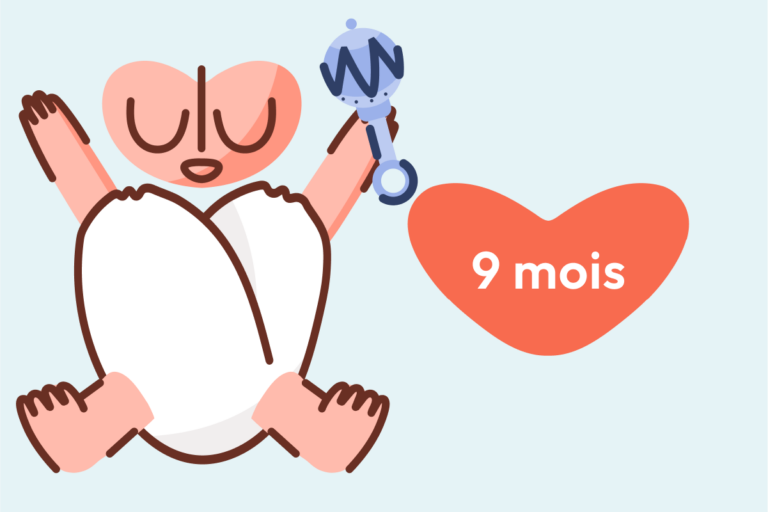Gentle rhythmic movements, sudden sharp “hic” sounds, puzzled looks—and here you are, watching your tiny baby experience a hiccup episode. For many new parents, baby hiccups evoke a curious blend of amusement and worry. Why does such a small, delicate being have these jerky sounds multiple times a day? Are they uncomfortable? Should you be concerned? Practical, everyday feeding suddenly brings a string of questions. Should the bottle be changed? Breastfeeding position adjusted? Can hiccups mean something is not right, or are they simply part of a baby’s unique journey? Explore the science behind these persistent little spasms, get strategies to soothe your child, and gain insight into when to relax, and when it’s time to ask for medical guidance.
Understanding Baby Hiccups: What Happens Inside Your Baby’s Body
Tiny babies, with their developing systems, often surprise with involuntary and consistent diaphragmatic contractions—yes, that’s what really causes baby hiccups. The diaphragm, a dome-shaped muscle residing beneath the baby’s lungs, suddenly contracts, triggering a rapid closure of the vocal cords. The result: the classic “hic” sound. Far from being a sign of alarm, these spasms are a normal developmental phenomenon—sometimes even apparent before birth, as doctors observe fetal hiccups during routine ultrasounds. Their presence is almost a rite of passage in infancy.
What is truly fascinating is that, for most babies, hiccups are neither painful nor even noticeable. While a parent’s concern might skyrocket, the infant usually continues to feed, play, or even sleep, undisturbed by these odd sounds.
Main Causes of Baby Hiccups
The list of triggers for baby hiccups is unexpectedly varied, and understanding the mechanisms is both reassuring and helpful. The primary cause lies in the immature nervous system: infants do not yet have fully established control over their breathing muscles. This makes their diaphragmatic reflexes unpredictable. Let’s break it down:
- Feeding patterns: Fast feeding or overfeeding can introduce excess air into the stomach. This pressure can irritate the diaphragm, leading to hiccups. Gulping milk or formula too quickly or an improper latch during breastfeeding may make this more likely.
- Temperature shifts: Have you noticed hiccups after giving a slightly cooler bottle, or moving your baby from an air-conditioned room to a warm spot? Babies find even mild temperature differences significant. Their bodies, not yet adept at temperature regulation, may respond with spasms of the diaphragm.
- Normal digestive development: Frequent digestive system contractions are a hallmark of infancy. As the stomach fills, stretches, and empties—sometimes air pockets become transiently trapped, inciting more hiccups.
Medical perspectives diverge slightly: some practitioners attribute an evolutionary role to baby hiccups, possibly as an in-utero exercise to strengthen respiratory muscles prior to birth. Others view them purely as a natural byproduct of digestive and neurological maturation.
Distinguishing baby hiccups from colic or gastroesophageal reflux (GER/GERD) is essential:
- Hiccups are brief, rhythmic, and largely non-distressing.
- Colic is marked by sustained crying, rigidity, and apparent pain.
- Reflux tends to trigger spit-up, discomfort, and sometimes arching or fussiness post-feeding.
Long, persistent hiccups associated with other symptoms—such as distress, refusal to feed, vomiting—signal the need for a professional opinion, but these situations remain rare.
Feeding, Baby Hiccups, and Prevention
Feeding time is often ground zero for baby hiccups. Each parent knows how unpredictable a feeding can be—one sipping session goes quietly, and the next leads to noisy, hiccup-filled drama. But why?
Swallowed air is the main offender. Whether at the breast or with a bottle, an improper latch or a too-fast flow means air sneaks into the stomach. This sets the stage for pressurized hiccup episodes. Fortunately, simple modifications are highly effective:
- Positioning: Maintain your baby as upright as possible during feeds, and keep holding them upright for 20–30 minutes post-meal. Upright posture reduces reflux and stabilises the diaphragm.
- Burping routines: Frequent pauses to burp, especially halfway through and after every feed, help the stomach expel air before it becomes a problem.
- Pacing the feed: For bottle-feeding infants, select anti-colic bottles or slow-flow nipples—look for a controlled, steady drip rather than a gush.
- Latch correction: With breastfeeding, ensuring a deep latch limits air intake and mitigates the risk of digestive spasms.
- Pre-emptive feeding: Try not to let your child get overly hungry before feeding; desperate, rapid sucking is likelier to result in air gulping and subsequent hiccups.
Wondering if a gentle rocking or a pacifier could help? Sometimes, yes! Sucking relaxes the nervous system and can settle a restless diaphragm, while soothing rhythmic movement calms the baby and may gently halt the cycle of hiccups.
Preventive Tips for Reducing Baby Hiccups
Eliminating baby hiccups entirely is unrealistic—but minimizing their frequency and duration is possible. Savvy parents develop routines around these key habits:
- Feed calmly and patiently: Avoid hurried or forceful feeds. Short pauses offer your baby a chance to digest comfortably.
- Routine burping: It cannot be overstated—burping is your strongest ally in keeping air out of the stomach.
- Hold upright: For 20–30 minutes post-feed, opt for gentle upright holding rather than immediate play or laying flat.
- Temperature control: Maintain a stable environment. Abrupt exposure to cool drafts or cold liquids can surprise sensitive young systems.
- Resist energetic play: Delay physical activity after meals; bouncing or tummy time is best scheduled well after the feed. This is particularly important for younger infants whose coordination is still developing.
If using bottles, opt for those specifically designed for newborns or those marked as “anti-colic,” because reducing swallowed air means fewer triggers for hiccups.
Safe Remedies and Practices: What to Try, What to Avoid
What should you do when baby hiccups appear? First, resist panic—almost always, nothing needs to be done. Baby hiccups are self-limiting. Yet, certain approaches can provide comfort:
- Upright holding: Cradle your baby against your chest or over your shoulder; a gentle back pat might release trapped air.
- Pacifier soothing: Let your child suck a pacifier. This may create a calming, repetitive swallowing motion that helps relax the diaphragm.
- Gentle motion: Soft rocking or slow walks around the room can distract and ease both baby and parent.
What should be firmly off-limits?
- Unproven home methods: Avoid startling your baby, pressing on the head, or giving sugar water/herbal drops, as these lack medical validation and may risk harm.
- Don’t force water feeds: Especially for babies under six months—offering plain water interferes with sodium balance and is unnecessary unless prescribed.
- No panic responses: Remember, visually dramatic though they may appear, most baby hiccups are not an emergency or a sign of underlying illness.
When Are Baby Hiccups a Medical Concern?
Most episodes pass quietly, needing neither dramatic intervention nor special care. Yet vigilance matters—recognising when hiccups signal a potential problem helps safeguard your child’s health:
- Lips or face turning blue: can suggest respiratory trouble (seek emergency care immediately).
- Persistently severe or frequent vomiting paired with hiccups and feeding refusal: warrants a check-up to rule out gastroesophageal reflux or other digestive concerns.
- Hiccups stretching beyond two hours, or regularly disturbing feeding or sleep: should be discussed with your child’s doctor.
- Signs of distress: including marked irritability, repeated back arching, or reluctance to eat.
Paediatric evaluations commonly involve questions about feeding habits, observation of symptoms, and a gentle physical exam.
Supporting Parents: Information, Peace of Mind, and Self-Advocacy
Frequent baby hiccups can challenge even the most patient parents. While traditional beliefs may prompt a desire to intervene, science assures that most episodes are simply a “growing up” signal–the body’s way of practicing its vital reflexes. Choosing informed feeding techniques, providing comfort, and keeping a close eye on worrisome symptoms offers your child the best start.
Remember: reliable support is always within reach. Consulting your pediatrician, lactation consultants, or health nurses provides both comfort and clarity. Discussion in parent groups or with friends sometimes brings unexpected insight. Stay confident—if something doesn’t feel right, professional guidance is just a call away.
Key Takeaways
- Baby hiccups are a frequent and normal finding in infancy and rarely indicate a health problem.
- Strategies for prevention include gentle feeding, frequent burping, upright positioning, attention to temperature changes, and paced bottle use.
- Most episodes are benign, resolving on their own without home remedies—avoid risky practices.
- Persistent, distressing, or symptom-associated hiccups may warrant a medical consultation.
- Trusted resources and experts stand ready to help you make the best choices for your child. For more advice and access to free paediatric health questionnaires, download the application Heloa designed for parents seeking smart, tailored support.
Questions Parents Ask
Can my baby sleep with hiccups, or must I intervene?
Although it may look surprising, most infants sleep peacefully through baby hiccups, often entirely unbothered. No need to wake or reposition your little one if they seem settled and breathing easily. If, by chance, hiccups seem to annoy or disrupt your baby’s comfort, try holding them upright for a bit or gently burping. Usually, the episode resolves spontaneously.
How long do baby hiccups usually last?
Episodes are typically brief—just a few minutes—though occasional hiccups can linger up to 10–15 minutes. The repetitive, abrupt sounds might catch your attention, but unless accompanied by significant fussiness, there’s little to be concerned about. If attacks become unusually prolonged or frequent, don’t hesitate to check with a healthcare provider for assurance.
When do baby hiccups become a reason for worry?
Keep an observant eye. While nearly all baby hiccups are harmless, certain warning signs matter: repeated interruption of feeds, ongoing distress, abnormal skin coloration (bluish lips or face), or regular association with vomiting means prompt discussion with your paediatrician is sensible. Most commonly, your vigilance and intuitive care are all that’s needed.
Should I try to stop the hiccups, or let them resolve naturally?
Let nature take its course. Active intervention is very rarely necessary. Gentle holding, upright positioning, and soothing routines are enough. Unvalidated remedies—like sugar, herbal drops, or startling—should be carefully avoided, as these are neither safe nor supported by evidence. If you sense your baby is uncomfortable or episodes grow more troublesome over days, consult your doctor for specific advice.
Further reading:









